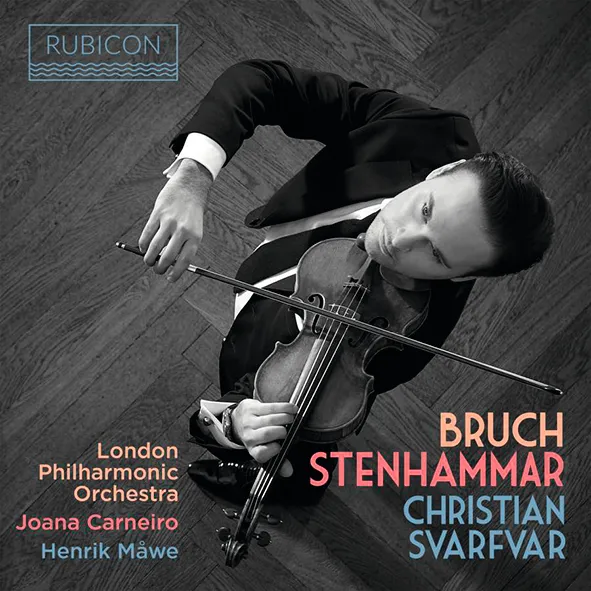
Bruch Violin Concerto No. 1; Stenhammar Violin Sonata in A minor, Op. 19; Two Sentimental Romances Christian Svarfvar (violin), Henrik Måwe (piano); London Philharmonic Orchestra/Joana Carneiro Rubicon RCD 1033 65:36 mins
Swedish violinist Christian Svarfvar brings a great deal of warmth and subtlety to the Violin Sonata and Two Sentimental Romances by his countryman, Wilhelm Stenhammar. Dating from the turn of the 19th century, the Sonata remains unaccountably neglected by performers despite being attractive and full of memorable thematic material. Admittedly, its musical language is hardly original since at this stage in his career, Stenhammar was still heavily indebted to Brahms, Schumann and Schubert, and a distinctly Nordic colouring is far less in evidence than in the sonatas of Grieg. Nonetheless, Svarfvar and pianist Henrik Måwe deliver a performance that is notable for its impeccable unanimity of ensemble, and the duo project the more overtly emotional Two Sentimental Romances with noble restraint.
Unfortunately, Svarfvar’s performance of the Bruch First Violin Concerto is far less engaging. Although he should be applauded for adopting a distinctive approach to an over-familiar warhorse, I’m not convinced that burdening the work with the kind of weight and expansiveness you might expect in, say, the Brahms Concerto, is entirely convincing. Of course, adopting a slow tempo for the outer movements need not necessarily be a problem if there’s sufficient ebb and flow between soloist and conductor to ensure that the musical argument has a certain degree of momentum. But Svarfvar and Joana Carneiro present a rather unyielding heavy-handed account of the exuberant Finale, and the accelerando near the end of the first movement is held back far too much with the result being that the big orchestral tutti sounds ponderous rather than febrile.
Erik Levi